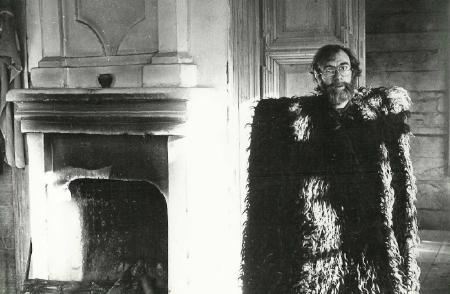Stories
Psychology for Revolutionaries
Psychology for Peace Activists
Why there are so few women warriors
The Seville Statement on Violence
A theory of mental illness
* * *
On my return from Soviet Georgia at the end of 1981, I could no longer put my energy into research on the brain mechanisms of aggression which could be used to develop new and terrible brain-altering weapons. What should I do?
I remember when I first had the idea. I was driving a rented car from Denver up to Fort Collins Colorado in the summer of 1982 on my way to the annual meetings of the Behavior Genetics Association, when it occurred to me to write a psychology for revolutionaries.
My methodology was simple and scientific. I would read the autobiographies (or biographies if no autobiographies) of great revolutionaries and look for common principles of consciousness development in them. Interestingly enough, the scientific establishment of psychology was not yet advanced enough to deal with the question of consciousness development; instead, I learned about this from the consciousness-raising groups that had sprung up in the days of the New Left.
I was able to find and use the following autobiographies by revolutionaries: Frederick Douglass, W.E.B. DuBois, Mahatma Gandhi, Elizabeth Gurley Flynn, William Z. Foster, Big Bill Haywood, Martin Luther King, Sr., Malcolm X and Kwame Nkrumah. Although Martin Luther King, Jr. never wrote an autobiography, I used the book about him by his wife Coretta Scott King.
By the fall of 1983, I had finished a draft of the little book. I decided not to publish it, however, since I did not have an audience, but instead I went on to write another version for peace activists.

A photo of me taken by Misha in Georgia.
Click on the photo to enlarge, or click here for another photo.
Here, for the historical record, is an outline of the unpublished book, which, perhaps, I will get around to publishing someday. In addition to what is shown here, each chapter has a section called "Some practical applications."
INTRODUCTION
I. THIRST FOR KNOWLEDGE
Why the Thirst for Knowledge is Important
Alienation: How it suppresses the Thirst for Knowledge
II. ANGER
Where is Anger Directed: Social Change, Scapegoating, or Depression
III. DREAMING AND OPTIMISM
The Critical Role of Dreaming in Consciousness Development
Optimism vs. Pesimism
IV. ACTION AND STRUGGLE
The interrelation of Anger, Optimism and Action
Why do the People Fail to Take Action?
V. AFFILIATION AND UNITY
Affiliation, Action, Anger and Optimism
Affiliation versus Anarchism
VI. REVOLUTIONARY ANALYSIS
Why Revolutionary Analysis comes So Late in Development
True and False Analyses
VII. INTEGRATION: HISTORICAL AND PERSONAL
Two Kinds of Dis-integration: Provincialism and Burn-out
VIII. REVOLUTIONARY CONSCIOUSNESS AS THE HIGHEST STAGE OF BEING HUMAN
BIBLIOGRAPHY
During this period I wrote a number of essays on related subjects which were never published, but copies of which I retain:
Manifesto of Revolutionary Anti-War Movement (1983)
A Marxist-Leninist Analysis of War and Peace (Versions of January and August 1984, July and November, 1985)
Two Views of Consciousness Development: Some Similarities and Differences (A comparison to the analysis in book by Boris Lomov, Methodological and Theoretical Problems of Psychology)
A Marxist Contribution to Peace Education (given at University of Cincinnatti April 1984)
Consciousness Development in Peace Activists: Where Physiology and History Intersect (given at the International Society of Political Psychology, June 1985)
The Theory and Practice of Peace (August 1985)
I was especially influenced by the brief sketch that Marx did for a psychology in his Theses on Feuerbach, written several decades before the discipline of psychology was invented. In this regard see Revolutionary Psychology on line at http://sfr-21.org/psychology.html .
Also, in January of 1984, I taught a course, entitled "A Marxist Analysis of the Peace Movement" at the People's School for Marxist Studies which I set up for the Communist Party in New Haven. The syllabus was readings from Marx, Engels and Lenin along with contemporary statements from the Soviet Union and the 1969 International Meeting of Communist and Workers Parties in Moscow.
 |
Stages
1986-1992
Fall of Soviet Empire
1992-1997
UNESCO Culture of Peace Programme